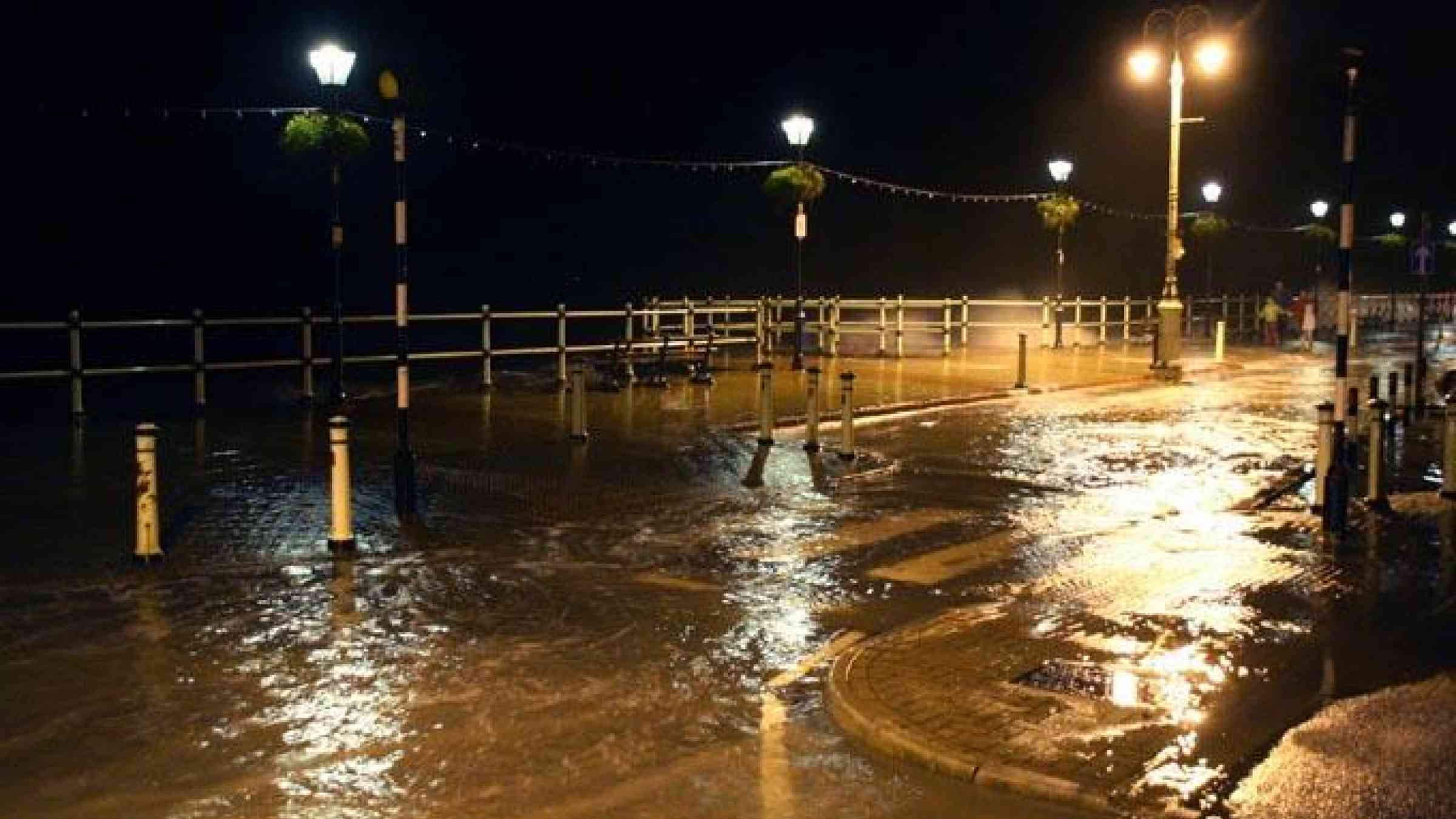Please help us improve PreventionWeb by taking this brief survey. Your input will allow us to better serve the needs of the DRR community.
Adaptation to increasing flood risk in Europe should aim to reduce impact

Flooding in Wales. Photo by Flickr user Ben Salter CC 2.0 https://flic.kr/p/6m2gNS
A JRC-led research published in Climatic Change investigated the benefits of four adaptation measures to reduce the increasing flood risk in Europe under state-of-the-art global warming projections under a high-end climate scenario. Adaptation measures include the rise of flood protections, reduction of the peak flows through water retention, reduction of vulnerability and relocation to safer areas.
Under the projected increase in frequency and magnitude of river floods in the current century, traditional approaches focused on raising local flood protections indefinitely are not sustainable in the long term. Future adaptation strategies should use a combination of different measures working in synergy and optimised at the level of river basins, rather than through independent actions over specific river reaches.
According to the study, adaptation efforts should favour measures targeted at reducing the impacts of floods, such as relocation and vulnerability reduction, rather than trying to avoid them. Reducing vulnerability includes early warning systems, dry and wet flood proofing, and floating buildings, among others. Indeed, those measures reduce the effect of uncertainty in the future climate on the consequent risk reduction, making societies more resilient to increasing climatic extremes. Conversely, adaptation plans only based on rising flood protections have the effect of reducing the frequency of small floods and exposing the society to less-frequent but catastrophic floods and potentially long recovery processes. Further adaptation measures to reduce the peak flow should make use of natural retention capacity upstream, while rising flood protections should be seen as last resort, to compensate for the residual risk in areas where other options cannot be implemented.
The study used the high-end climate RCP8.5 scenario of the Intergovernmental Panel on Climate Change (IPCC) which assumes high levels of greenhouse gas concentrations, and foresees a global temperature rise exceeding 4⁰C before the end of the century. The study takes the period 1976-2005 as baseline scenario, while the benefits of implementing adaptation measures are evaluated over 2006-2100.
Explore further
Please note: Content is displayed as last posted by a PreventionWeb community member or editor. The views expressed therein are not necessarily those of UNDRR, PreventionWeb, or its sponsors. See our terms of use
Is this page useful?
Yes No Report an issue on this pageThank you. If you have 2 minutes, we would benefit from additional feedback (link opens in a new window).